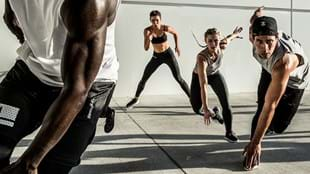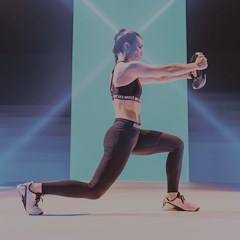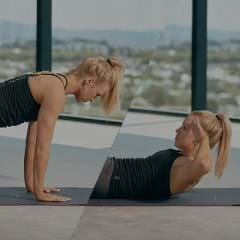Anyone who follows the latest in fitness news knows that HIIT is a hit. A big hit. But high-intensity interval training is much more than a fad – it is a scientifically proven way to build cardiovascular fitness, and research is revealing plenty more health benefits it can bestow. Here are five of the top researched reasons to put HIIT on your own workout list:
- HIIT improves lean body mass and maximal oxygen consumption, while drastically cutting the risk of heart disease. Learn more.
- HIIT is extremely effective at cutting stubborn and unhealthy tummy fat. Learn more.
- In both young (18 to 30) and older (65 to 80) exercisers, a major study showed HIIT had by far the greatest activation of muscle and fat-burning capacity, when compared with other types of exercise. Learn more.
- HIIT has been shown to be much better than other workouts for producing excess post-exercise oxygen consumption (EPOC), meaning your body continues to use oxygen and burn fat long after you’ve stopped exercising. Learn more.
- HIIT has been shown to be more enjoyable – in one study 92 percent of participants favored a HIIT workout over traditional moderate continuous exercise. Learn more.
So, the research definitely supports HIIT. But what about the science that goes into actually designing an effective HIIT program? In this video, one team of HIIT professionals explain how a combination of expertise, scientific insight and creativity go into the making of a great workout.
As Les Mills Head of Research Bryce Hastings explains, LES MILLS GRIT is designed to push the heart rate up as high as possible, as often as possible in a 30 minute phase. “So we design the workout to have these very high spikes of intensity, followed by a complete recovery. And it’s those spikes that generate the types of biochemical changes that are very specific to a HIIT workout.”
The workout is then tested by a team led by Dr Jinger Gottschall of Penn State University to measure its efficacy, and only then made available. They’re looking to see if we’re delivering on that HIIT promise,” says Bryce. “It’s the ‘pill’ that every athlete wants.”








